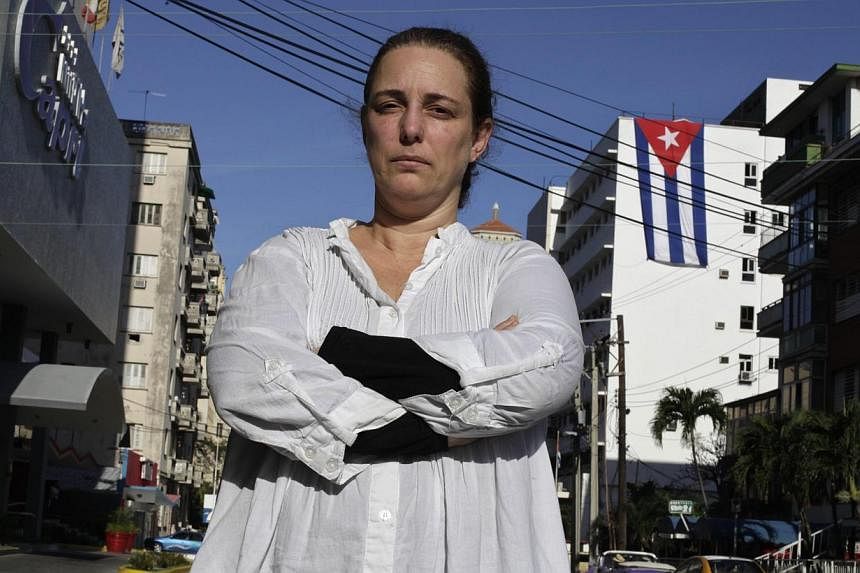HAVANA (REUTERS) - More than 500 artists wrote to Cuban President Raul Castro on Friday calling for the release of a colleague who was detained for a third time in three days in a crackdown that has tested a new detente with the United States.
Cuban performance artist Tania Bruguera was detained again on Thursday after going to a Havana prison to demand that fellow opponents of the government be released, dissidents said.
She had planned an open-microphone event earlier this week that the communist government called a "political provocation".
The dissidents, who have limited public support on the Caribbean island, are denounced by the Cuban authorities as in the pay of the United States.
In their open letter to Mr Castro, artists from around the world said they were "profoundly troubled" by Cuba's reaction to Ms Bruguera's event, which never took place.
Ms Bruguera, who divides her time between the island and art projects mostly in Europe and the United States, told Reuters after her first arrest that her passport had been confiscated by Cuban officials.
"We firmly believe her detention, and the withdrawal of her Cuban passport, are inappropriate responses to a work of art that simply sought to open space for public discussion," the artists' letter said.
Cuban officials do not typically comment on police activity such as the detention of dissidents.
Brief detentions are Cuba's standard response to opposition street protests, but they have taken on greater significance just two weeks after Mr Castro and US President Barack Obama announced on Dec 17 that they would restore diplomatic ties, potentially bringing an end to more than five decades of hostility.
Mr Obama's policy shift has drawn some opposition inside the United States from critics, who argue that the Cuban government now has less incentive to improve its human rights record.
A high-level US State Department official is expected to lead a visit to Havana later this month for detailed talks on how to restore diplomatic ties.
Mr Castro has applauded Obama for Washington's stance, but has said that Cuba will not change its one-party political system.

